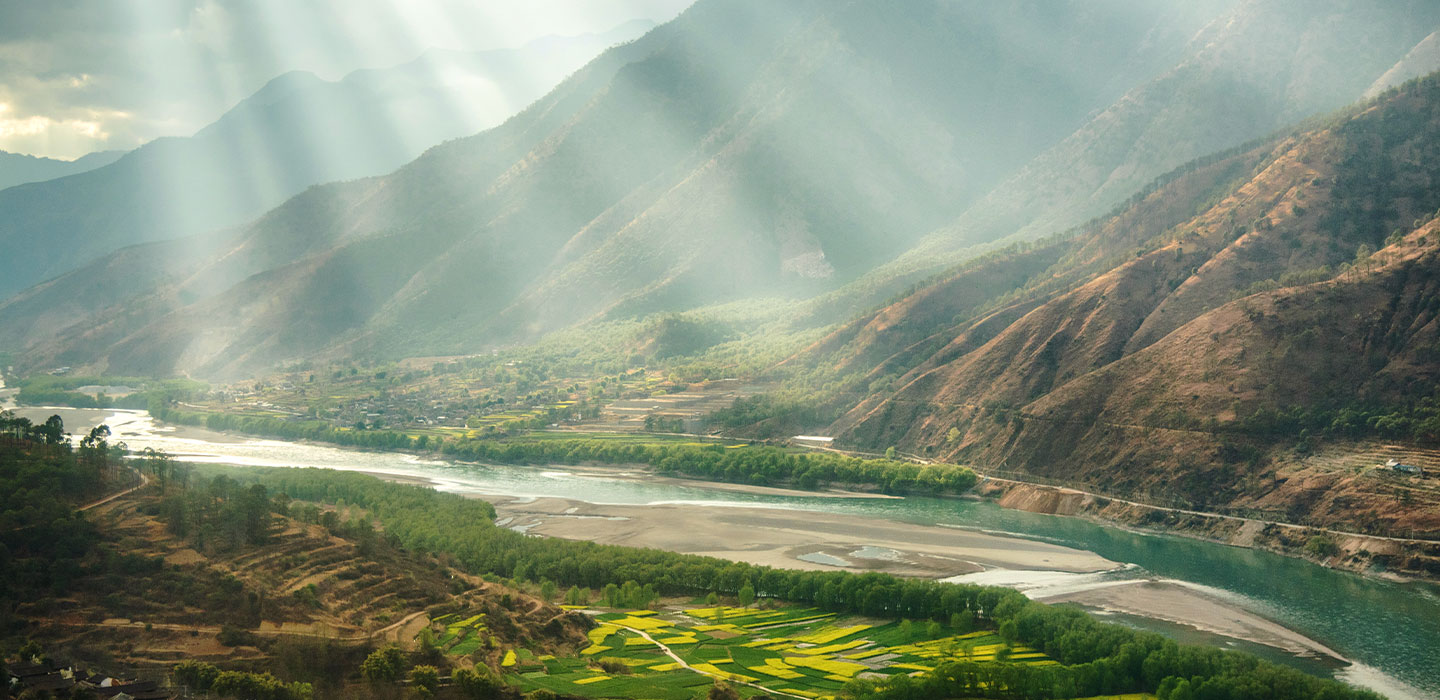今年 1 月,中國最長、世界第三長的河流長江實施了禁漁令。為了達到生態系統重歸平衡的目標,這項暫停捕魚的禁令將持續十年。受影響的漁民共有 231,000 人,他們當中很多家族幾代人都從事捕魚業。而且已經收拾好船隻前往旱地。為了獲取新的機會他們將重新學習謀生技能。但放棄這一生唯一所知的生活之道,就是他們對地球的貢獻。而隨著這些人的犧牲,魚類種群將得到恢復。它們來自長江中發現的 424 種魚類,其中近一半被歸類為地方性魚類,因此它們在其地理環境中是獨一無二的。
事實上,這條河是世界上水生生物多樣性最豐富的河流之一。從某種意義上來說,長江是人民的魂。因為它跨越了如此多的地區,他們有著屬於自己的文化、經濟、宗教和身份。長江流域的種族社群,與他們周圍超凡的生態一樣多樣化。在河流的不同地區的人們, 對於10 年禁漁期的需求和影響會有不同的感受。它給中華鱘和其他瀕臨滅絕的物種一個機會,包括具有象徵意義的長江江豚,命運早已與這條命名它的河流共存。
I’m James Chau. Six years ago, I was in Paris Agreement for the global negotiations to save our planet. The experience gave me a ringside seat as countries came together in an important expression of solidarity. The Paris Agreement is a legally binding treaty that was ratified the next year in Hangzhou by China and the United States, the two countries key to its future. That future needs more than a document in China, it means decades of real commitment by everybody. When China opened up to the world in 1978, it began acampaign to protect vast regions in its north, northwest and northeast that were deeply impacted by sandstorms from the Gobi Desert.
Ordinary people planted one tree after the other. In 2019 alone, they planted trees on an additional 17 million acres, making China a nation where 23% of the land is now forested.This is a story we don’t often hear, but it’s happening and it’s been happening for a very long time.
Two years ago, international researchers using data gathered by NASA satellites said China is leading the greening of the planet through tree-planting and bold agricultural programs. Literally, billions of trees are absorbing carbon dioxide, while pushing back against other problems from the loss of soil to desertification.
The champions are the women and men who have committed their lives to caring for our natural world, and their quiet yet life-changing effort is also seen on water. In January this year, a fishing ban came into effect across the Yangtze, the longest river in China and the third-longest in the world. The moratorium will last 10 years with the goalto re-balance the ecosystem. In all 231,000 fishermen, many of them generations from the same family, have packed-up their boatsfor dry land. They’ll be re-skilled for new opportunities, but giving up the only life they’ve known is their contribution to the planet. Because of their sacrifice, fish populations will be restored. They’re drawn from the 424 species of fish found in the Yangtze River, almost half of which are classed as endemic and thus completely unique to their geography. In fact, the river is one of the most aquatic biodiverse in the world.
The Yangtze is in a sense the soul of the people because it crosses so many regions with their own cultures, economies, religions and identities. Many of the communities are ethnic groups that are asdiverse as the extraordinary ecology surrounding them. Depending on the part of the river, the need and impact of the 10-year fishing ban will be felt differently. It will give a chance to the Chinese sturgeon and other breeds on the precipice of extinction, including symbolically the Yangtze Finless Porpoise whose fate has been compared to the survival ofthe river for which it is named. And that’s the story of our natural world. Our futures are interlinked and our opportunities reston the actions of one another.
Caring for what we have been blessed with is a moral, social and economic investment, and the people who dedicate their lives to this end are the unsung heroes of this story. We thank them for what they give us.

